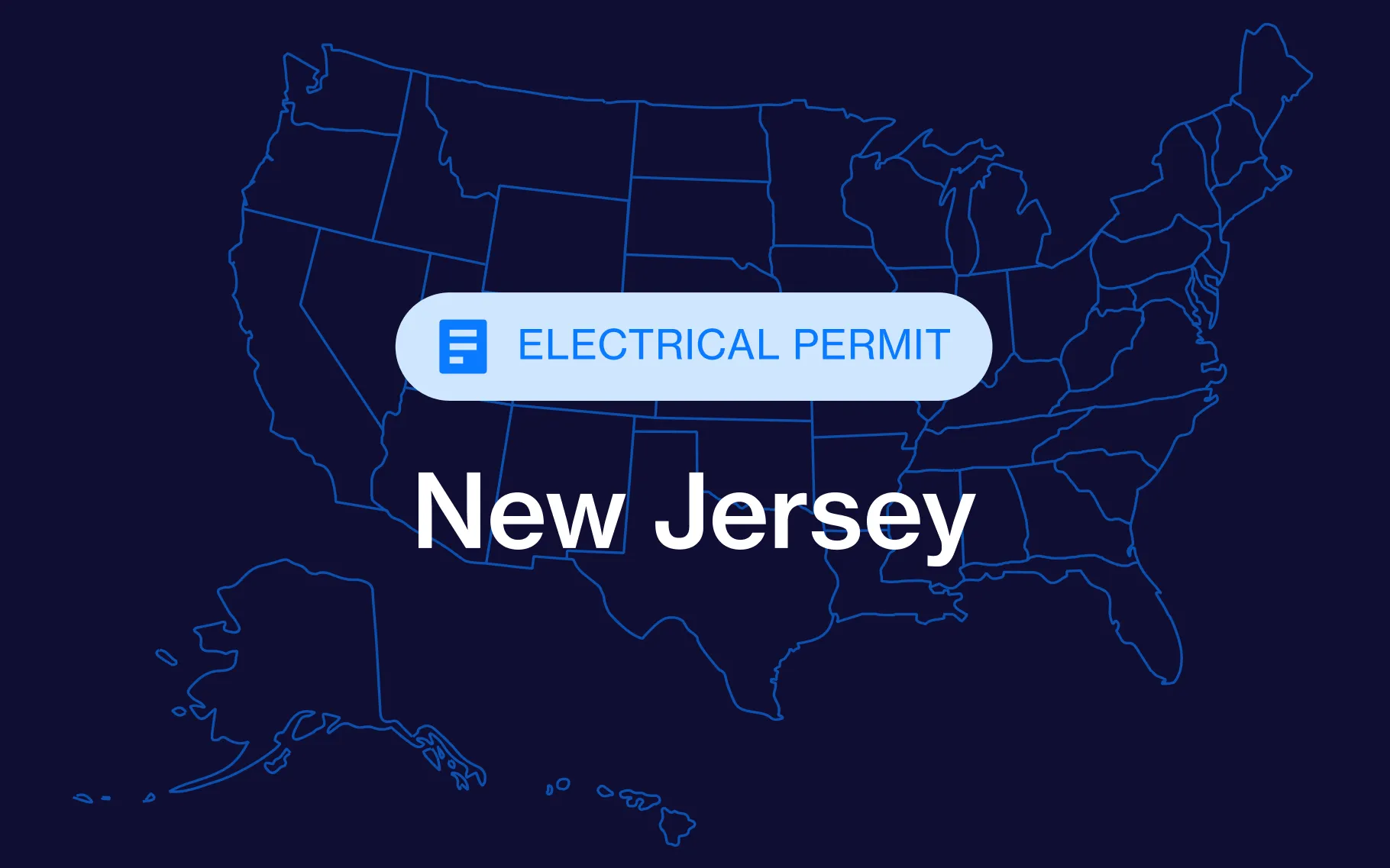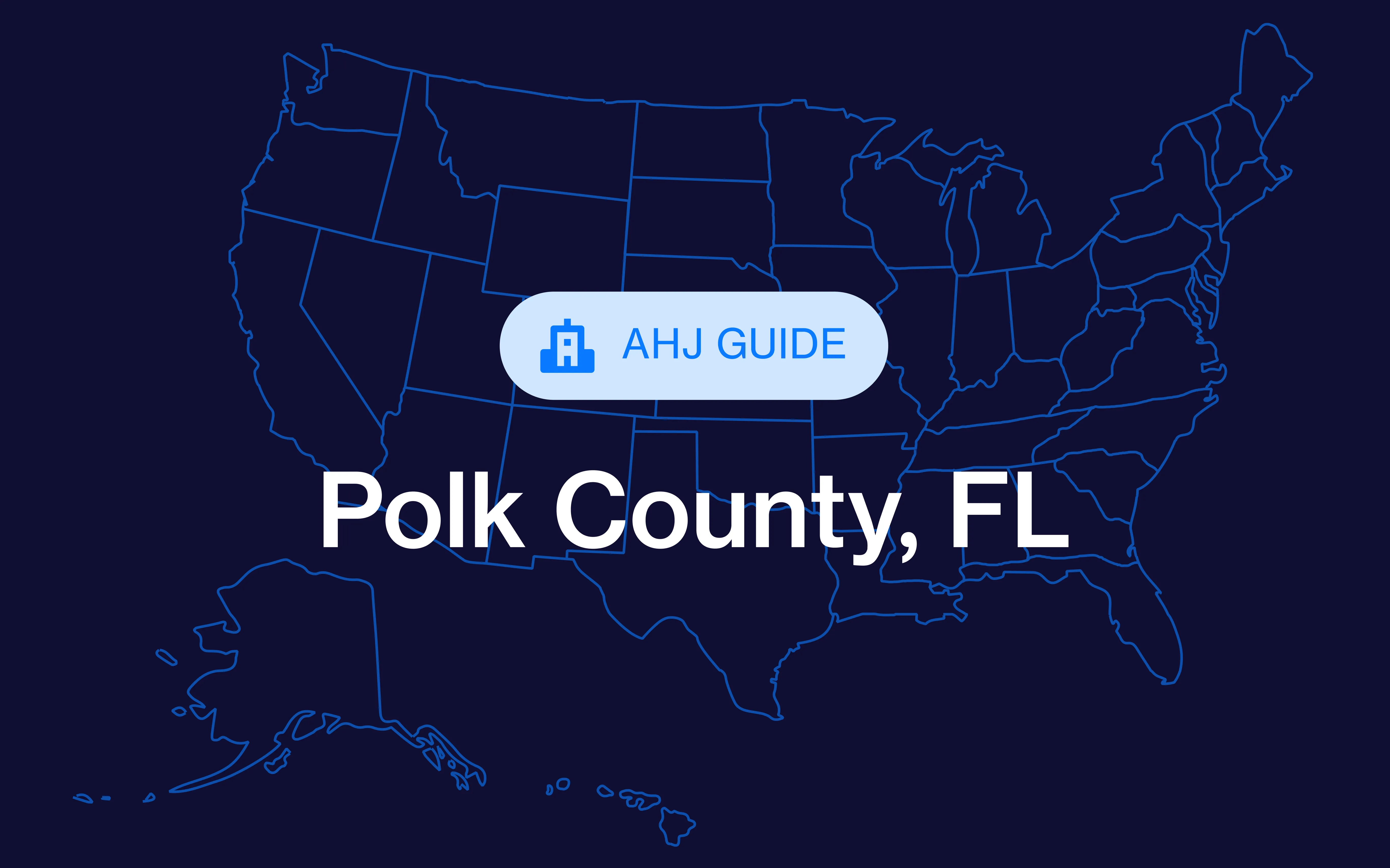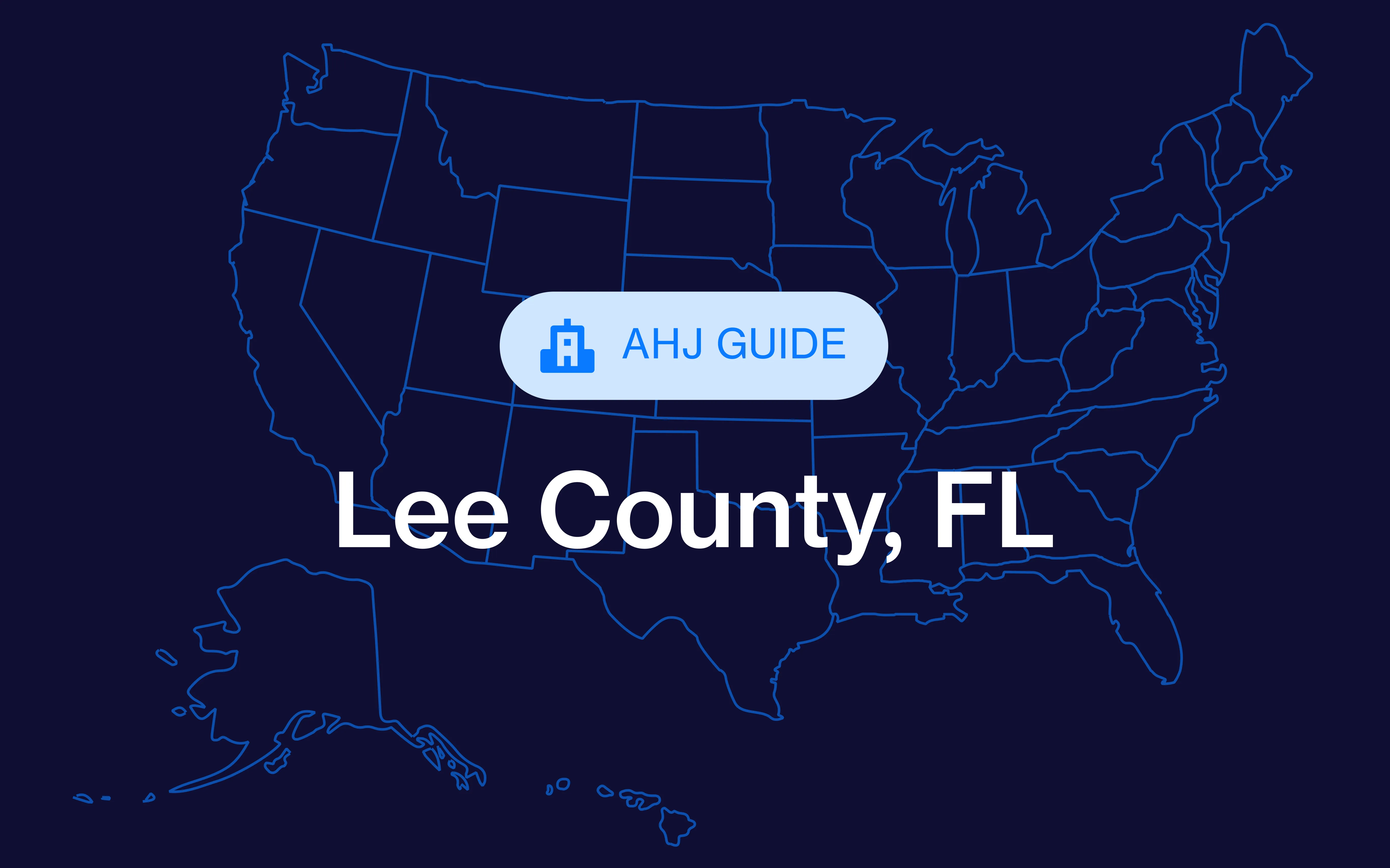If you're planning electrical work in New Jersey, whether you're a licensed electrician, a general contractor, or a homeowner, you’ll likely need to secure an electrical permit NJ before starting the job. Permits are required for most installations, upgrades, and repairs to ensure code compliance and electrical safety.
This guide breaks down everything you need to know, including NJ electrical permit application steps, forms, costs, and inspection requirements.
Pull electrical permits in New Jersey faster with PermitFlow.
Do you need an electrical permit in NJ?
Yes. According to the New Jersey Uniform Construction Code (UCC), electrical permits are required for most residential and commercial projects that involve:
- Installation of new circuits, new wiring, or new service equipment
- Adding more than 5 outlets, or modifying service/capacity
- New electrical work related to:
- Air conditioning units
- Clothes dryers
- Ranges or ovens
- Rewiring (unless it's the same capacity and same routing = minor work)
- Electrical work that penetrates fire-rated assemblies or is in hazardous locations
- Alarm systems (in commercial or multi-family dwellings)
Projects that don’t require an electrical permit
No permit is needed for the following if it's a like-for-like replacement and no wiring is changed:
- Replacing receptacles, switches, or lighting fixtures
- GFCI, tamper-resistant, and damp/wet area rules must still be followed
- Replacing doorbells or burglar alarms (in one- and two-family homes)
- Repairing motors or motor-operated devices
- Installing communication wiring (in non-hazardous, non-rated assemblies)
- Replacing domestic dishwashers
- Installing plug-in irrigation systems under 30 volts

New Jersey electrical permit requirements
To comply with NJ electrical permit requirements, you must:
- Be a licensed NJ electrical contractor, unless you're a homeowner performing work in your own single-family, owner-occupied residence (N.J.A.C. 5:23-2.15)
- Submit the following electrical permit NJ form to your local Construction Office:
- Provide a detailed description of the work
- Include panel schedules, wiring diagrams, or load calculations (if required for service upgrades or large installations)
Note: All submitted plans must comply with the electrical subcode of the NJ UCC (based on the NEC with state amendments).
NJ electrical permit fees
Permit costs vary by town and are typically based on:
- Number of circuits or outlets
- Amperage of service
- Types of equipment being installed
Here’s a sample breakdown from a typical NJ municipality:
Final calculations are:
Save time applying for electrical permits — use PermitFlow instead. Learn more.
Can a homeowner apply for an electrical permit in NJ?
Yes, but only under strict conditions:
- They must be working on a single-family, owner-occupied residence
- They must perform the work themselves (not hire an unlicensed third party)
- They are subject to the same inspections and code standards as a licensed contractor
- They must still submit all necessary permit forms (e.g., UCC F‑100 and F‑120), identifying themselves as the "Exempt Applicant"
How to apply: NJ electrical permit application process
Step 1: Complete required forms
Fill out the NJ electrical permit application forms:
- UCC F‑100 Construction Permit Application (general project info)
- UCC F‑120 Electrical Subcode Technical Section (detailed electrical scope)
Step 2: Prepare documentation
Provide a detailed scope of work, including:
- Type and number of fixtures/devices
- Panel/service upgrades
- Load calculations (if required)
- Wiring diagrams or panel schedules (for large or commercial jobs)
Step 3: Submit to the local construction office
Submit your completed application to your local enforcing agency.
Not sure where to submit? Use your town or city’s website or search "electrical permit + [your NJ town]" to find submission instructions.
Step 4: Review
Your local subcode officials will review the application for code compliance and if everything is complete, the permit is typically issued within 20 business days.
Step 5: Inspections
After installation, schedule required inspections (rough wiring, final inspection, etc.) by contacting your construction office.
Helpful links and resources
- Address: 101 South Broad Street, Trenton, NJ 08625
- Mail: dlgs@dca.nj.gov
- NJ plan review guide
- Construction permit packet & forms
- NJ code & regulation references:
Pull electrical permits in New Jersey faster with PermitFlow
Juggling service upgrades, code changes, and inspection dates is tough enough — wrangling dozens of municipal permitting portals shouldn’t be part of the job. Whether you’re swapping a single receptacle or powering a 200-amp commercial panel, every project needs the right permit, and delays cost billable hours.
PermitFlow simplifies the chaos of pulling electrical permits. Our permit management software crafts NJ-compliant applications, submits them to the correct office, and tracks approvals across every township you serve.
Electrical contractors choose PermitFlow because we deliver:
- Municipal expertise: We know the specific electrical permit requirements for cities and townships throughout New Jersey
- Streamlined workflow: Submit and track electrical permits across every jurisdiction through one platform
- Faster turnaround: Properly prepared applications mean quicker approvals and faster job starts
Ready to speed up your electrical permitting process? Contact PermitFlow today to learn how.








